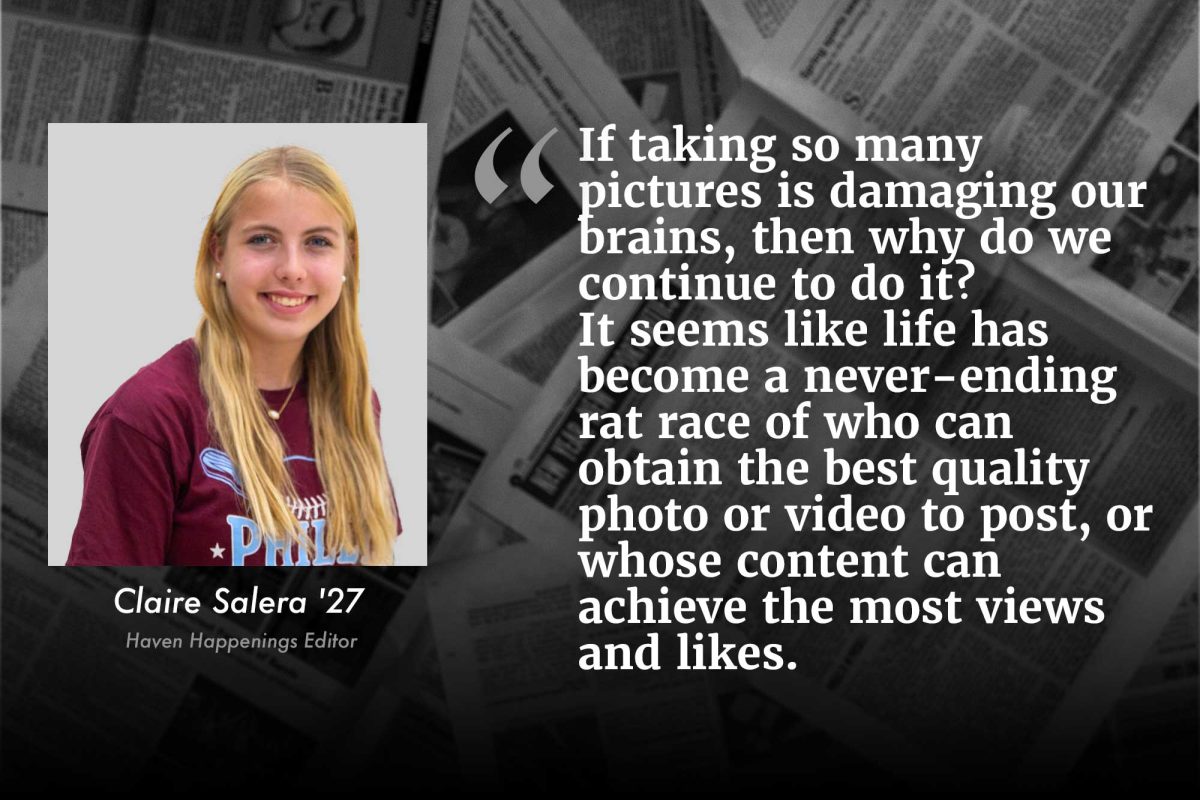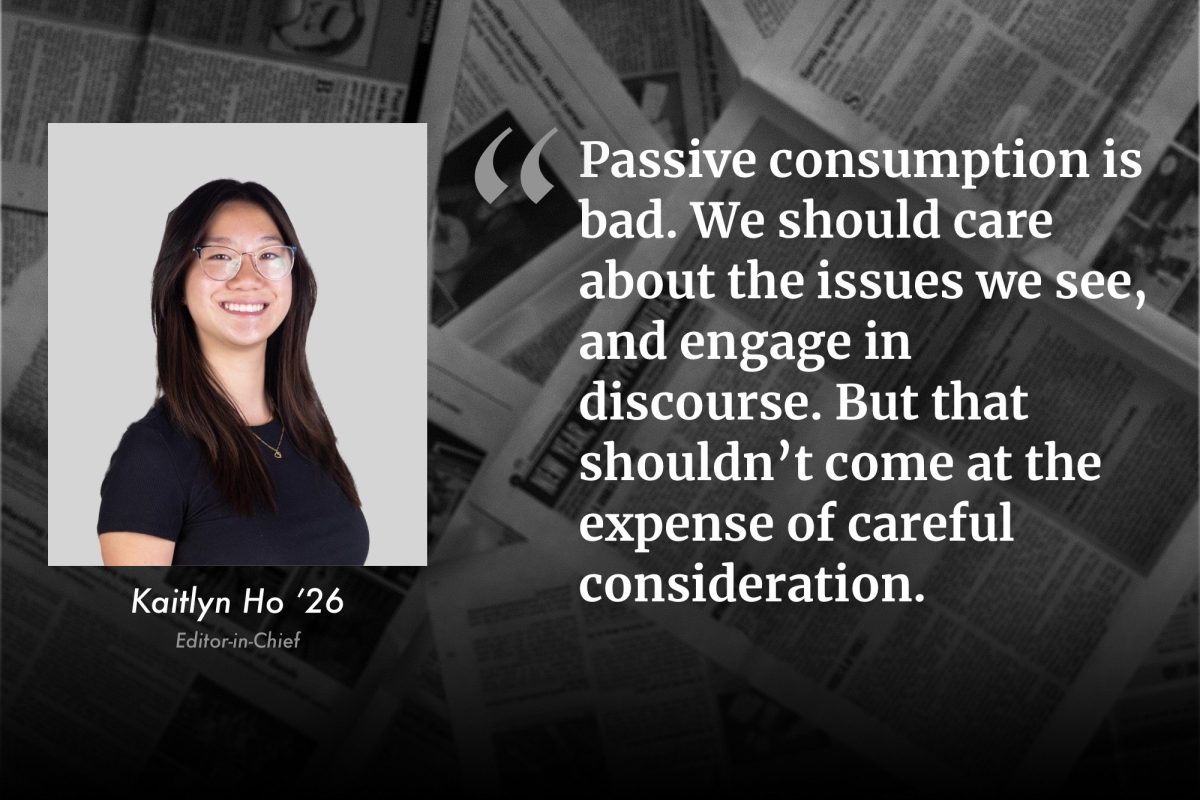Almost every time something remotely eye-catching, riveting, or life-changing happens, someone whips out a cellphone.
A celebrity spotted in unusual territory on the streets of New York — out come the phones. Dolphins eagerly leaping out of a glowing, seafoam-blue ocean — out come the phones. A monumental baseball grand slam for the new rookie — out come the phones.
What happened to seeing something through our own eyes and experiencing it in real time, instead of being so hyper-fixated on documenting it for later? What’s the appeal of watching a video on a screen when you could view it in real time?
I asked myself these questions when I attended an Olivia Rodrigo concert two years ago, and everybody around me had their cellphones out for what felt like the entire concert. They filmed almost every time she spoke or sung, to the point that it distracted me from the show. I attempted to experience everything in real time, but even I felt pressured to retrieve my phone and film my favorite songs — and shockingly enough, those are the songs that I remember least from the concert.
And just like my observation, NPR reports that constantly taking pictures could actually be detrimental to our memories. University of California Irvine professor Elizabeth Loftus states, “We either offload the responsibility of remembering moments when we take pictures of them, or we’re so distracted by the process of taking a photo that we miss the moment altogether.”
Similarly, a psychological study was conducted by Fairfield University professor Linda A. Henkel to analyze if subjects could remember more about paintings in a museum if they took pictures of them or solely viewed them in person. The study reported that if participants took a photo of each object as a whole, they remembered fewer objects and fewer details than if they instead only observed the objects without snapping photos.
If taking so many pictures is damaging our brains, then why do we continue to do it? It seems like life has become a never-ending rat race of who can obtain the best quality photo or video to post, or whose content can achieve the most views and likes.
With millions of photos of content swarming the world, physical pictures are losing their value. What happened to the now nearly extinct photo albums, and the appeal that comes with flipping through the pages, reminiscing childhood moments or milestones?
With cellphones and unlimited photo storage just a tap away, it seems like a requirement to document everything. But the dopamine associated with reaching for a phone to take a picture doesn’t necessarily feel great. A study conducted by Warrington College of Business maintains that 59.8% of a surveyed group found that pausing to take a picture decreased the enjoyment of the moment.
I believe that there is value in taking pictures every once in a while—like at events with family or friends. And the value of pictures will increase if they are kept in a physical photo album, to bring back the nostalgia of rummaging through the pages and reminiscing about childhood milestones.
If something out of the ordinary happens, don’t rush to take out your phone; instead, experience the moment in its entirety and focus on experiencing the moment in real time to encapsulate the physical senses.


















